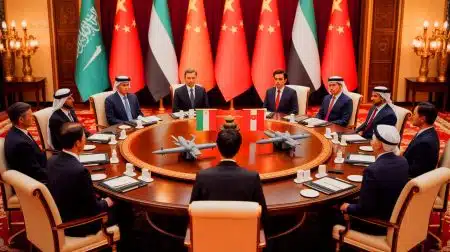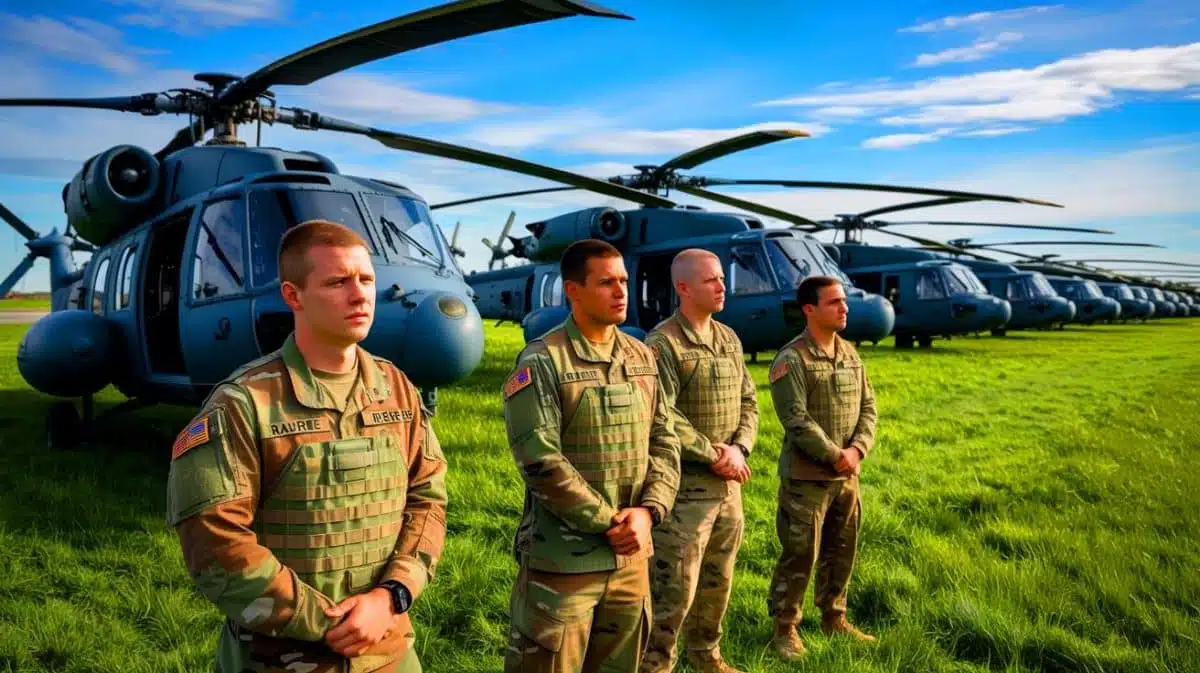| IN A NUTSHELL |
|
The recent decision to dismantle Army Reserve helicopter units has sent shockwaves throughout the military community. Thousands of soldiers are now grappling with the uncertainty of their future roles as the Army Reserve undergoes a significant transformation. This move, part of a broader effort to modernize the force, has sparked a mixture of frustration and confusion among those affected. As the Army shifts focus toward new technologies like drones and artificial intelligence, the human cost of these changes is becoming increasingly evident. Many soldiers are left questioning the pace and communication of this transition, which has upended the lives of countless reservists and their families.
Modernization Efforts and Their Implications
The Army Chief of Staff, Gen. Randy George, has embarked on a mission to modernize the force by eliminating legacy formations. This effort is aimed at redirecting resources towards cutting-edge technologies. However, the decision to dismantle all reserve helicopter units by the end of the summer has left a significant impact on the military landscape. The changes are being implemented at a rapid pace, and many soldiers feel left in the dark about the strategic vision behind these moves.
The transition has not been without its challenges. Soldiers have expressed concerns about the lack of communication and planning surrounding these changes. A senior noncommissioned officer described the situation as a “whirlwind-fast” process, which is uncharacteristic for government work. The abrupt nature of the changes has led to confusion and frustration among those who rely on the stability of their military roles.
The Human Cost of Restructuring
For many soldiers, the dismantling of helicopter units means more than just a change in assignment. It represents a complete upheaval of their professional lives. Reserve aviators, including commanders and senior noncommissioned officers, have voiced their frustrations with the chaotic rollout of these changes. The lack of foresight and clear communication has left many feeling abandoned by the institution they serve.
Junior enlisted soldiers and part-time reservists face unique challenges as they navigate the transition. Many of these individuals balance their military obligations with civilian careers or college coursework. The prospect of transferring to a new unit or occupational specialty can be daunting, particularly when it requires months of retraining. For those with specialized skills, such as air medical expertise, the path forward is even more uncertain.
Navigating New Opportunities
As reserve units are dismantled, soldiers are left to seek alternative roles within the military or federal agencies. Some have found opportunities with U.S. Customs and Border Protection or within the National Guard. However, these options often require relocation, adding another layer of complexity for service members and their families.
The transition to the National Guard is not without its own set of challenges. The Guard is frequently called upon for overseas deployments and domestic missions, which can be a significant burden for part-time soldiers. Additionally, the transition may involve the repayment of enlistment bonuses, which has further complicated the decision-making process for many reservists.
Political and Strategic Concerns
The dismantling of Army Reserve helicopter units has not gone unnoticed by lawmakers. On Capitol Hill, there is growing frustration with the Army’s approach to these structural changes. Critics argue that the reforms are being implemented in a disjointed and hasty manner, leaving Congress with limited insight into the Army’s strategic plans.
Lawmakers from both parties have emphasized the need for transparency and coherent planning. They acknowledge the necessity of modernization but express concern over the lack of communication and clarity. The decision to cut units like the 1st Assault Helicopter Battalion, 158th Aviation Regiment, has raised questions about the impact on domestic emergency response capabilities and the long-term implications for military readiness.
The dismantling of Army Reserve helicopter units marks a significant shift in military strategy, prioritizing modernization over traditional formations. While the move aims to position the Army for future challenges, the immediate impact on soldiers and their families is profound. As the military community grapples with these changes, the question remains: how will the Army balance the need for modernization with the well-being and stability of its service members?
Did you like it? 4.4/5 (28)







Wow, this is a huge shake-up for the Army Reserve! How are they planning to support the soldiers during this transition? 🤔
Modernizing is important, but at what cost? Seems like the soldiers are the ones paying the price. 😞
Does anyone know if there are similar plans for other branches of the military?
Feels like we’re living in a sci-fi movie where drones replace helicopters. Hope it works out! 🚁🤖
Thank you for shedding light on this issue. The human cost often gets overlooked in modernization efforts.
Seems like a betrayal to me. How can they just abandon the troops like that? 🤨
Why is communication always the first thing to fail in these big changes? It’s so frustrating! 😡
Is there any compensation for the soldiers who have to relocate or retrain?
Does this mean more job opportunities in the National Guard?